Disagreements, arguments, and occasional hurt feelings are part of most marriages, and many couples grow accustomed to navigating some level of conflict. Over time, this can blind people to behavior that goes far beyond what’s acceptable.
On r/Relationship_Advice, one woman described how her husband ignored not just her comfort but also her deepest fear. Living with severe claustrophobia, she said he deliberately trapped her in a closet, laughing while she begged to be released.
His “joke” left her deeply shaken, forcing her to reevaluate their entire marriage.
RELATED:
This woman has been living with a bad case of claustrophobia

Image credits: Impactphotography / Envato (not the actual photo)
But for some reason, her husband finds it amusing
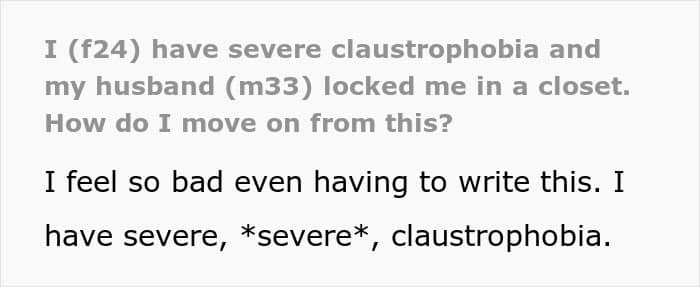


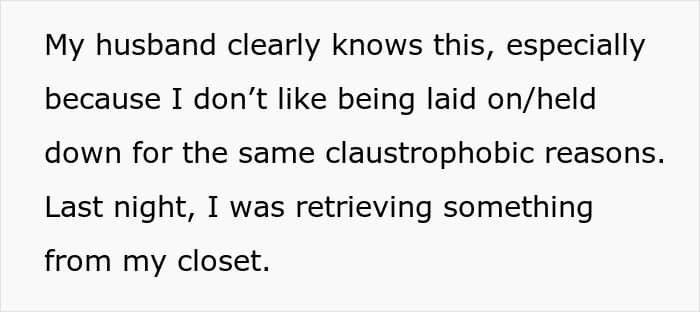
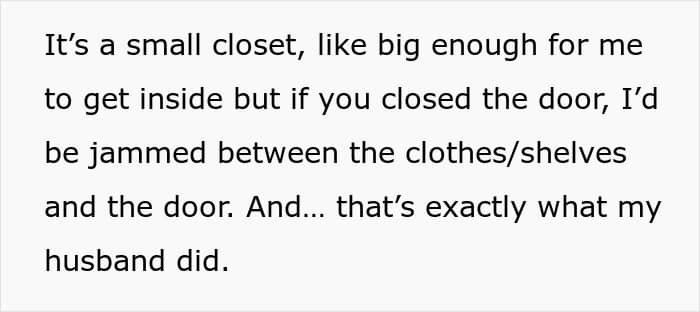
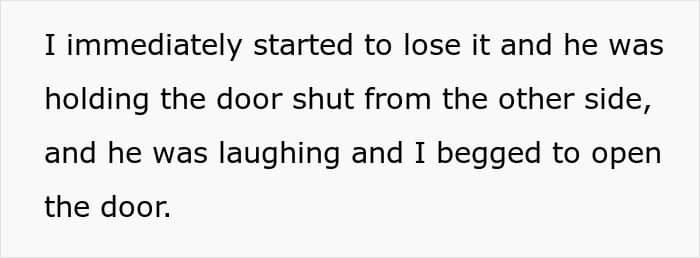
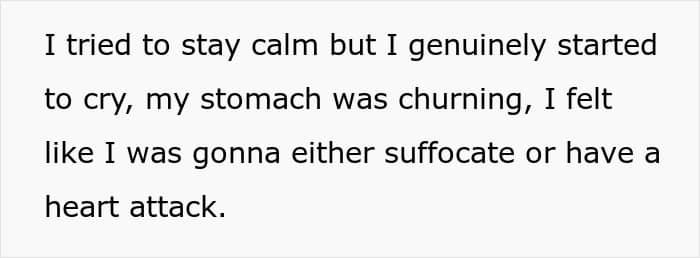


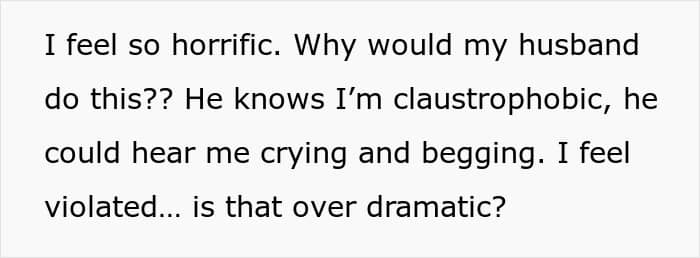
Image credits: throwra-021
Phobias aren’t funny

Image credits: s_kawee / Envato (not the actual photo)
Little is known about what causes people to develop a fear of confined spaces. However, it usually emerges during childhood or in teenage years, and traumatic events — such as being stuck in a crowded space for an extended period of time, being locked in a small space as punishment, or experiencing heavy turbulence when flying — can also play a part.
The Redditor didn’t provide the specifics about her condition, but she did highlight that it’s severe. Triggers in such cases may include:
being in a small room without windows;riding in an airplane or small car;being in a packed elevator;undergoing an MRI or CT scan;standing in a large but crowded room, like at a party or concert;standing in a closet.
Other places that can trigger claustrophobia include public restrooms, car washes, revolving doors, store dressing rooms, caves or crawl spaces, and tunnels.
As you can imagine, with such limitations, even normal routines can feel unpredictable and exhausting.
The woman revealed more about her predicament in the comments

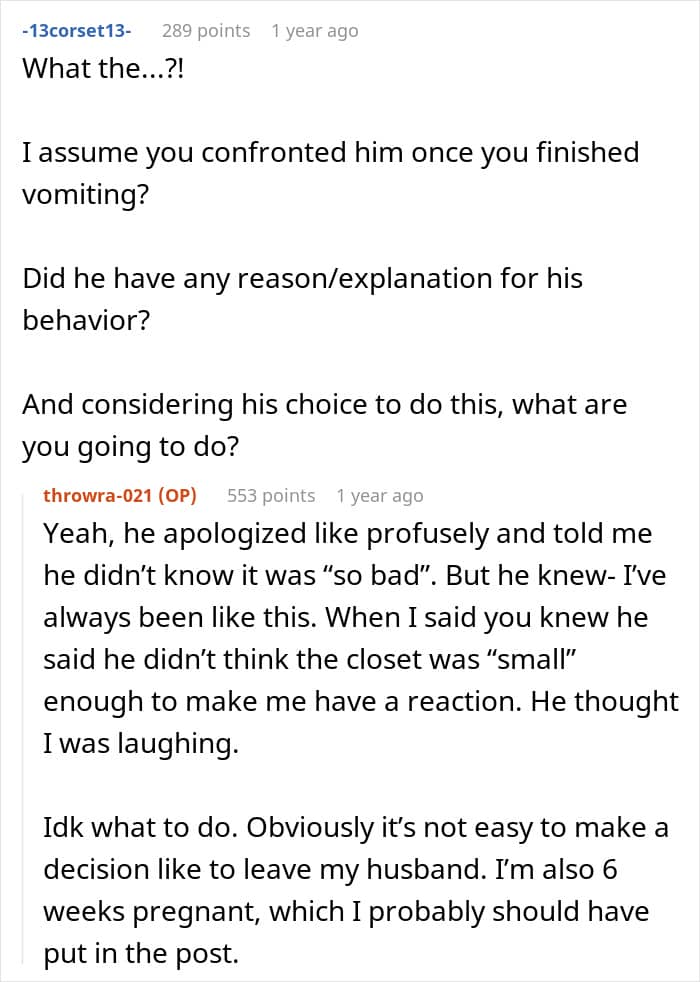
People thought her husband’s actions were a clear sign that she needed to leave him


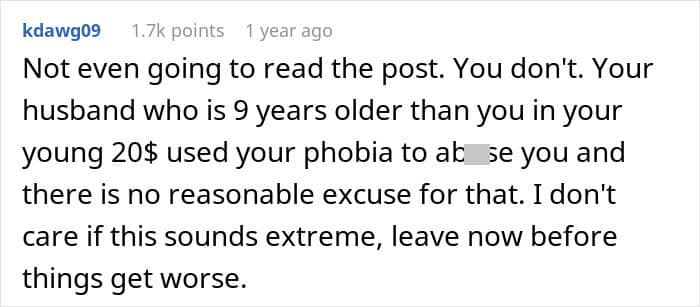
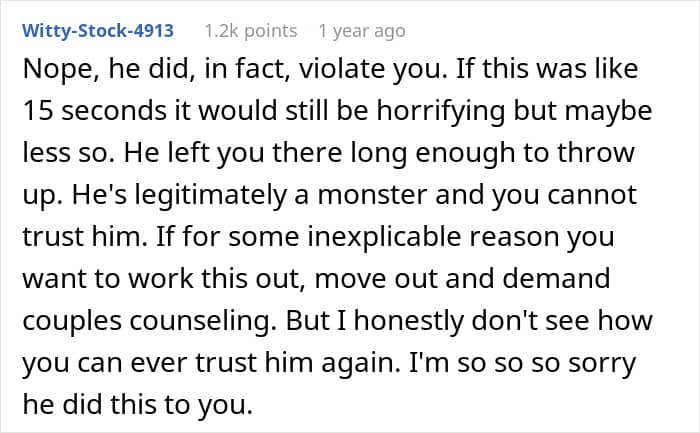



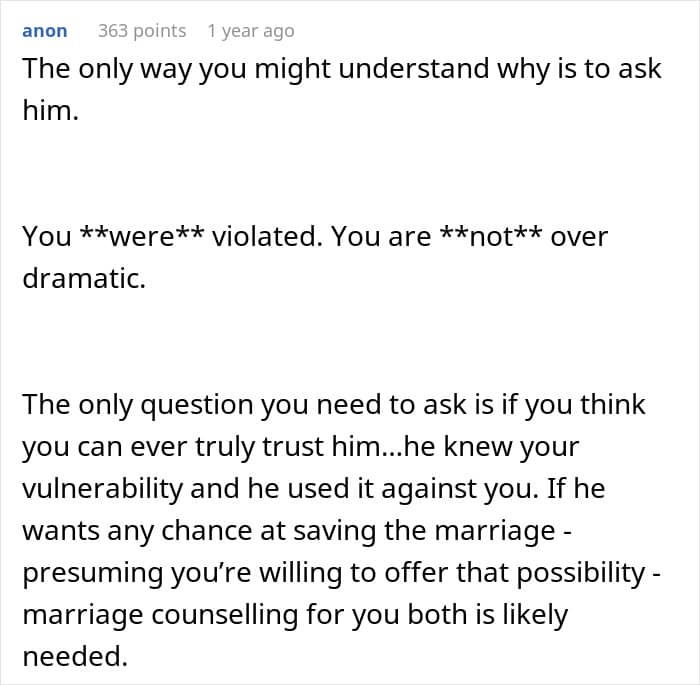

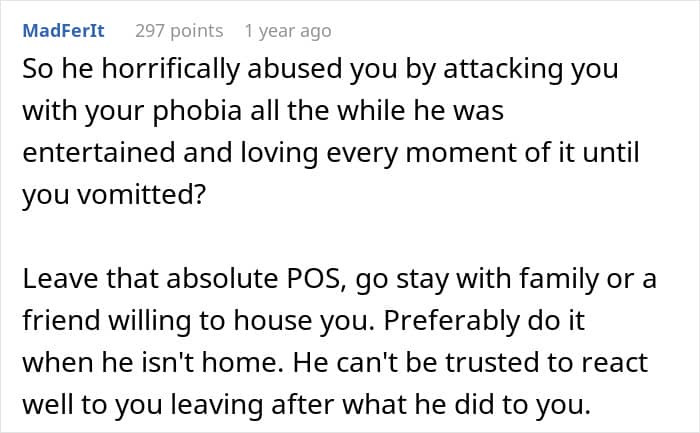
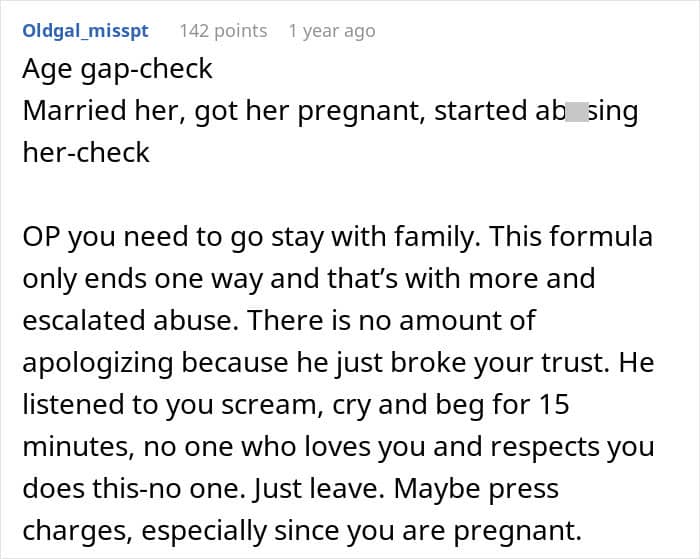

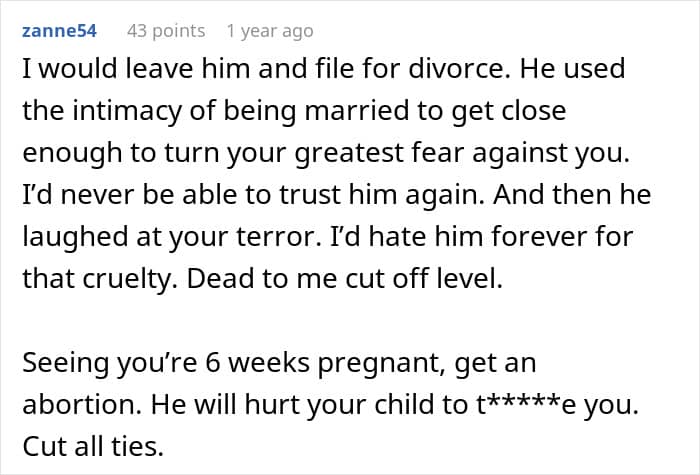







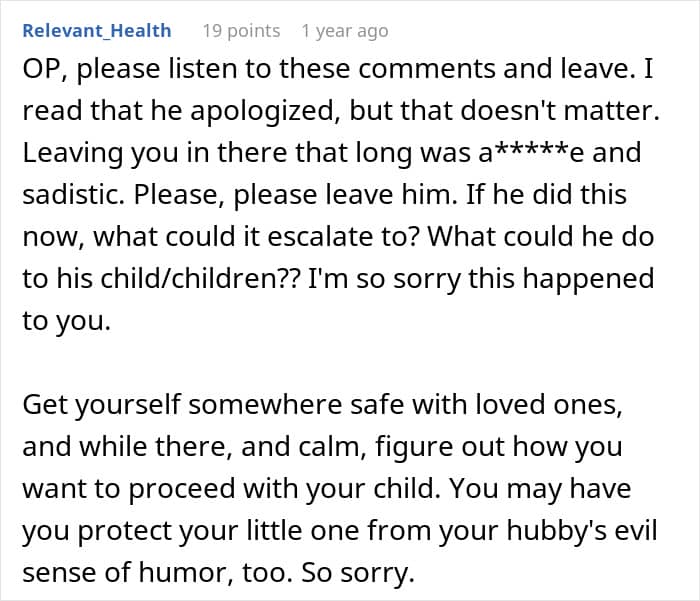

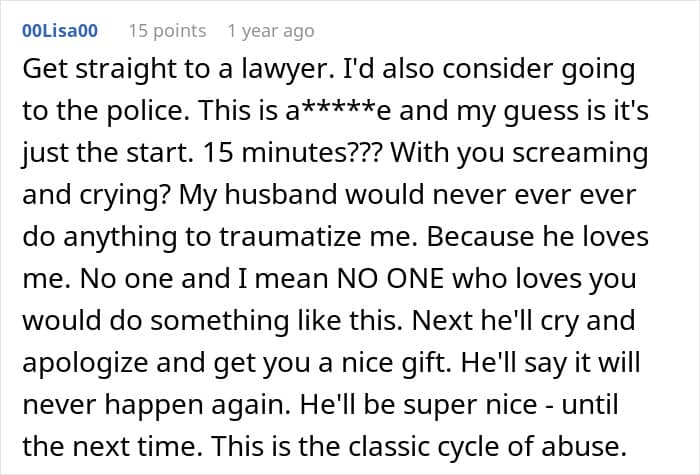
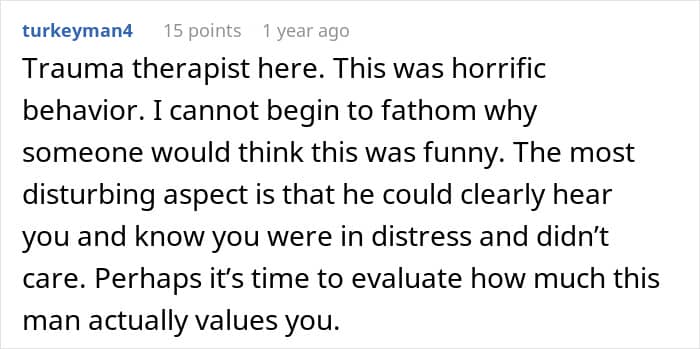

Eventually, that’s exactly what she decided to do

Image credits: Pablo Merchán Montes / Unsplash (not the actual photo)

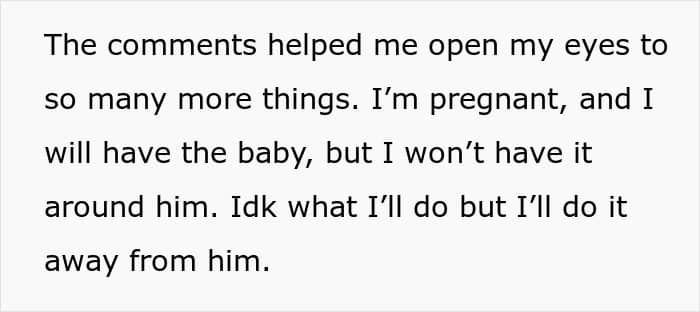
Image credits: throwra-021
How to identify emotional abuse
Attitudes and behaviors that may signal emotional abuse include:
Ridicule:Name-calling, making “jokes” that attack your character, or shaming you. This may also occur in front of other people, further affecting your self-esteem.Verbal abuse: Emotional abuse isn’t always subtle. Sometimes, it manifests asverbal attacks, sudden mood changes, or episodesof yelling.Humiliation: This may also show up as either private or public behaviors that degrade you or make you feel hopeless.Threat of abuse:Trying to create fear with threats ofharming themselves, you, or something you care for. This may be done to control the decisions you make.Jealousy: Someone may exhibit controlling behaviors toward you to limit the time you spend away from them.Restriction or damage to property: Attempting to scare someone through destruction may be used to create a perception of control.Threats of ending the relationship: If your partner issues an ultimatumor threatens a divorce to exert control, this is abusive behavior.Neglect: When someone deliberately refrains from meeting your physical or emotional needs, it can be considered a form of neglect.
According to apaper from 2023, being exposed to coercive control can lead to post-traumatic stress disorder (PTSD) and depression. So the woman definitely needs to prioritize her own well-being.